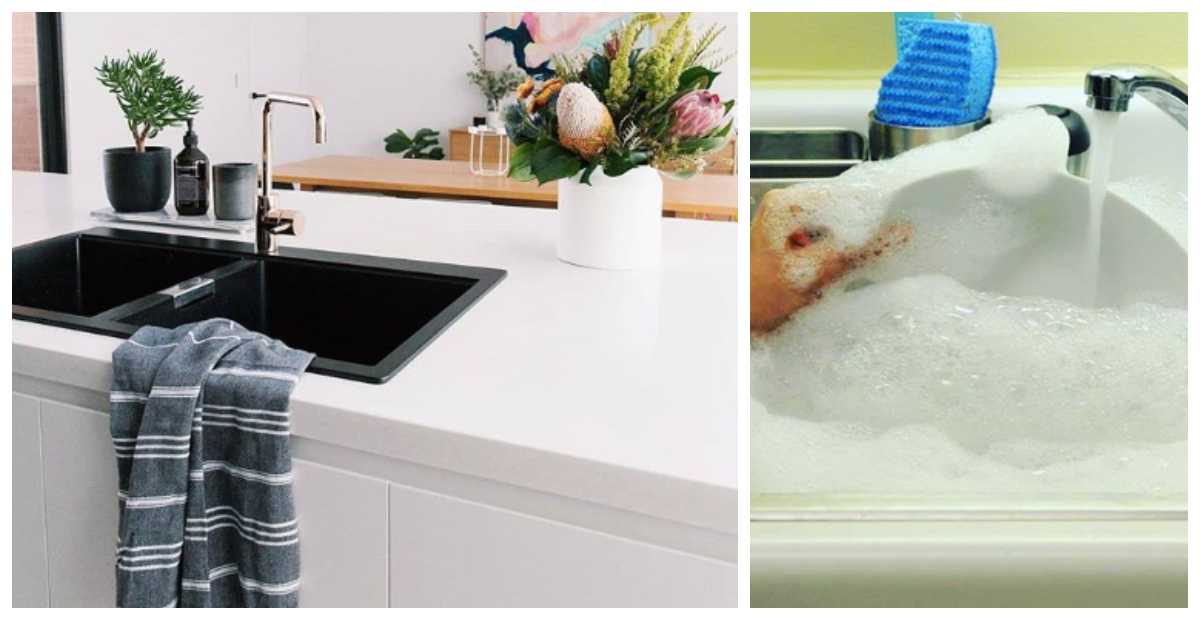
There is nothing more satisfying than clean dishes. Sometimes you even hand-wash and hand-dry them yourself just to get that extra satisfaction. But did you realize that your common kitchen towel could potentially lead to food poisoning?
Studies show that your kitchen towel may be contaminated with germs like E. coli that could be carried from person to person via their own dinner plate! Researchers tested 100 kitchen towels and 49 of them tested positive for harmful bacterial growth.
https://www.instagram.com/p/BjlDX_5ANO7/?tagged=cleaningdishes
So, how do our kitchen towels get so dirty? The more people eating off your dinner plates, the more possible contamination from microorganisms. In addition to this, meats and poultry also contribute to an increase in harmful bacteria. These meats are typically contaminated before they’re cooked (which is obviously why you don’t eat raw meat)! Eating plant-based might help lower the risk of bacterial growth, but only slightly.
https://www.instagram.com/p/BknSxIcA-IX/?tagged=kitchentowel
Minimizing the spread of bacteria starts with proper hygiene and cleanliness. We might think that we’re doing a fine job of it, but there’s always room for improvement. We could all go the extra mile by washing our hands thoroughly before working with food and swapping out our kitchen cloths every day to prevent the opportunity for bacterial growth.
https://www.instagram.com/p/BkOEKQYFWhl/?tagged=washingdishes
In addition to changing your in-kitchen habits, don’t skip laundry duty! Throw those kitchen towels in the batch every week and run them on high heat. It will kill all of the potential bacteria that are growing in the fabric. Making these changes will ensure that you and your family are healthy and not exposed to harmful illnesses such as E. coli.
https://www.instagram.com/p/BkWWyu-gS2X/?tagged=kitchentowels
As a bonus tip, remember to frequently toss out your sponges! These helpful cleaners can also harbor dangerous bacteria and end up doing more harm than good. If you don’t feel up to constantly replacing your sponges, consider rotating different cleaning devices or soaking your sponge. All you’ll need is a solution of 3/4 cup bleach in one gallon of water or a bowl filled with full-strength vinegar.
https://www.instagram.com/p/BkYRcDAABR5/?tagged=kitchensponge
Were you shocked by this insight into your kitchen cleaning habits? Be sure to SHARE this with your friends if you were!
